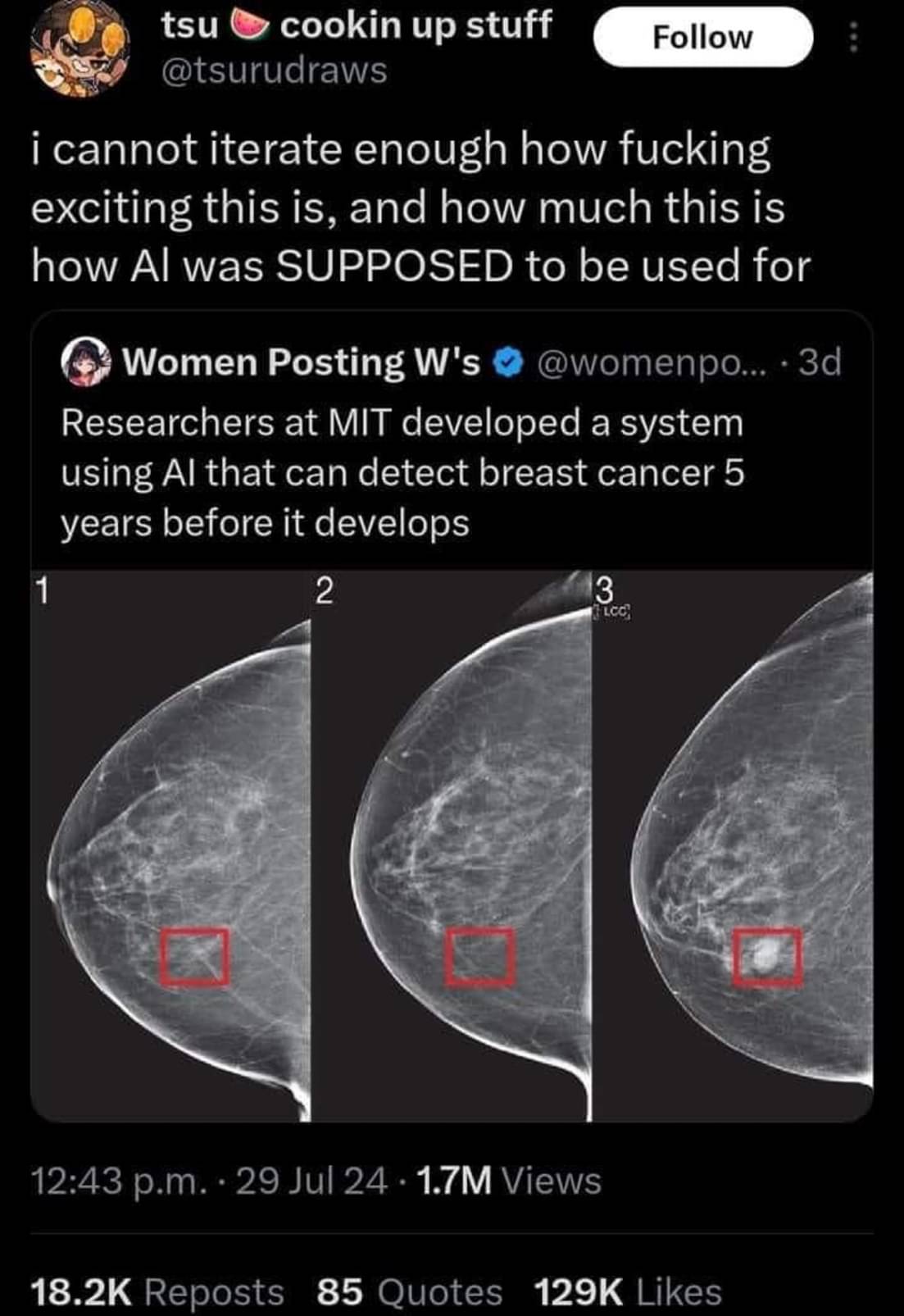this post was submitted on 02 Aug 2024
1492 points (98.4% liked)
Science Memes
11068 readers
3093 users here now
Welcome to c/science_memes @ Mander.xyz!
A place for majestic STEMLORD peacocking, as well as memes about the realities of working in a lab.

Rules
- Don't throw mud. Behave like an intellectual and remember the human.
- Keep it rooted (on topic).
- No spam.
- Infographics welcome, get schooled.
This is a science community. We use the Dawkins definition of meme.
Research Committee
Other Mander Communities
Science and Research
Biology and Life Sciences
- [email protected]
- [email protected]
- [email protected]
- [email protected]
- [email protected]
- [email protected]
- [email protected]
- [email protected]
- [email protected]
- [email protected]
- [email protected]
- [email protected]
- [email protected]
- [email protected]
- [email protected]
- [email protected]
- [email protected]
- [email protected]
- [email protected]
- [email protected]
- [email protected]
- [email protected]
- [email protected]
- [email protected]
- !reptiles and [email protected]
Physical Sciences
- [email protected]
- [email protected]
- [email protected]
- [email protected]
- [email protected]
- [email protected]
- [email protected]
- [email protected]
- [email protected]
Humanities and Social Sciences
Practical and Applied Sciences
- !exercise-and [email protected]
- [email protected]
- !self [email protected]
- [email protected]
- [email protected]
- [email protected]
Memes
Miscellaneous
founded 2 years ago
MODERATORS
you are viewing a single comment's thread
view the rest of the comments
view the rest of the comments

Unfortunately AI models like this one often never make it to the clinic. The model could be impressive enough to identify 100% of cases that will develop breast cancer. However if it has a false positive rate of say 5% it’s use may actually create more harm than it intends to prevent.
Breast imaging already relys on a high false positive rate. False positives are way better than false negatives in this case.
That’s just not generally true. Mammograms are usually only recommended to women over 40. That’s because the rates of breast cancer in women under 40 are low enough that testing them would cause more harm than good thanks in part to the problem of false positives.
Nearly 4 out of 5 that progress to biopsy are benign. Nearly 4 times that are called for additional evaluation. The false positives are quite high compared to other imaging. It is designed that way, to decrease the chances of a false negative.
The false negative rate is also quite high. It will miss about 1 in 5 women with cancer. The reality is mammography is just not all that powerful as a screening tool. That’s why the criteria for who gets screened and how often has been tailored to try and ensure the benefits outweigh the risks. Although it is an ongoing debate in the medical community to determine just exactly what those criteria should be.